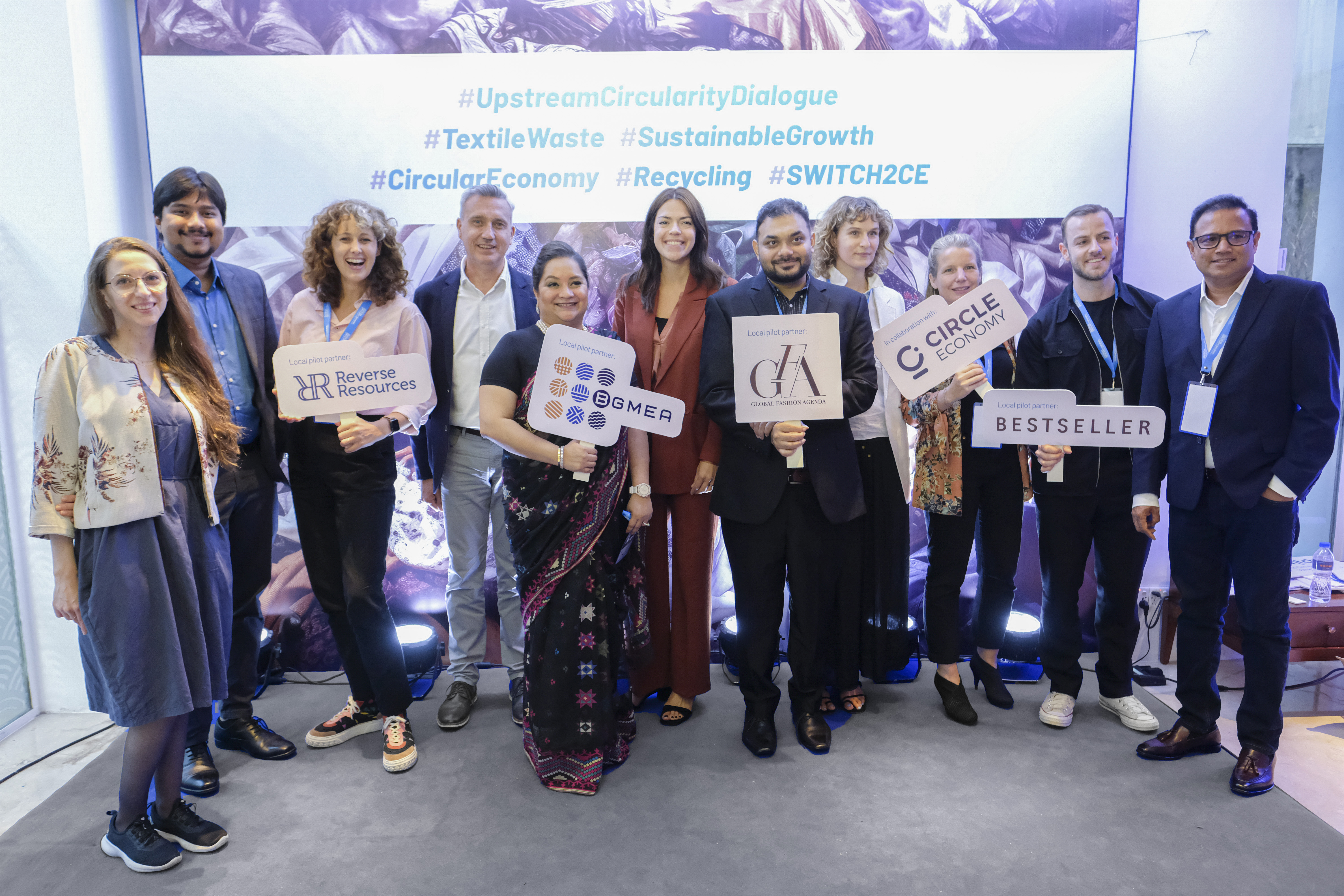With the SWITCH2CE support, BESTSELLER works on scaling up traceable textile recycling with suppliers in Bangladesh, capturing, and valorising high volumes of post-industrial textile waste.
This will provide manufacturers with circular business solutions, reducing dependency on virgin materials and increasing the availability of recycled materials. The main goal is to achieve a long-term, scalable and just transition to a circular textile system in Bangladesh and beyond.
“At this moment in time, everybody understands the need for new business practices in order to transition to a circular economy. Bangladesh is a key sourcing country for BESTSELLER, with many long-standing business partners, and that makes Bangladesh an obvious starting point for creating systemic changes in regard to waste segregation,” says Alexander Granberg, Senior Project Specialist at BESTSELLER.
Event kick-off
Circularity presents a significant opportunity for Bangladesh to reduce its environmental impact, improve its economic performance, and create social benefits. However, embracing circularity also poses certain challenges for Bangladesh’s apparel industry that must be collectively considered and resolved.
“Through our close relation, we know the importance of uniting all key stakeholders to find solutions that are both viable and beneficial for the entire industry,” says Alexander Granberg.
To address this, an esteemed panel of industry leaders, policymakers, and experts in circular economies recently convened for the "Switch to Upstream Circularity Dialogue: Pre-consumer Textile Waste in Bangladesh" event at the Amari Hotel in Dhaka. The dialogue covered the strategies, policies, infrastructure, collaborations, and innovations necessary to build a thriving circular ecosystem in Bangladesh.
A valid business case
To introduce the "BESTSELLER - Switch to Upstream Circularity Pilot", BESTSELLER’s Chief Representative in Bangladesh & Pakistan, Dishan Karunaratne, went on stage to talk about how we can scale up traceable textile recycling with our suppliers in Bangladesh. For BESTSELLER, one of the most important things to gain from this pilot, is transparency.
“We are excited to see that some of our suppliers have already started segregating waste and that they can actually see the business case,” says Dishan Karunaratne.
“Still, the system today is too opaque and with the expected upcoming legislation, we know that the current system must improve further. It requires long-term commitment. In this project, our primary role as a global fashion company is to make sure that all our local partners stay motivated throughout the transition.”
The event was organised under the Switch to Circular Economy Value Chains project (SWITCH2CE), co-funded by the European Union and the Government of Finland. SWITCH2CE is led by United Nations Industrial Development Organization (UNIDO), in collaboration with Chatham House, Circle Economy, and European Investment Bank, and supports the switch to circularity in selected global value chains.







- UNIDO’s Switch to Circular Economy Value Chains initiative is part of GFA’s Circular Fashion Partnership programme, under which BESTSELLER with support of GFA, BGMEA and Reverse Resources is the lead applicant on the BESTSELLER – Switch to Upstream Circularity Pilot.
- Switch to Circular Economy Value Chains is an initiative that assists EU multinational companies and their suppliers from developing countries to switch to more circular economy approaches and practices in three selected value chains: Plastic Packaging, Textile & Garments, and ICT and Electronics.
- The overall objective of SWITCH to Circular Economy Value Chain Project is to support the “Transformation towards a circular economy”, including to contribute to sustainable growth, low carbon and climate resilient development, decent jobs creation, and safer, healthier, and pollution-free environment. SWITCH is co-funded by the European Union and the Government of Finland, and implemented by UNIDO, in collaboration with Chatham House, Circle Economy, and the European Investment Bank.
- Bangladesh is the second largest readymade garment exporter in the world.
- Learn more about the BESTSELLER – Switch to Upstream Circularity Pilot here.








